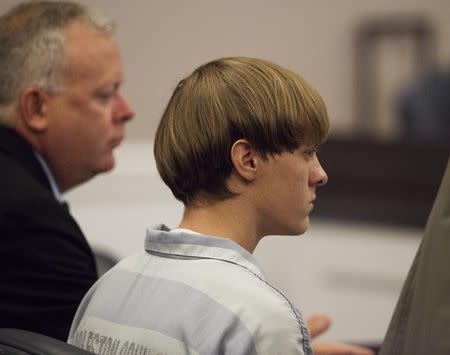Death penalty still being weighed for accused Charleston church gunman

By Harriet McLeod CHARLESTON, S.C. (Reuters) - The U.S. Justice Department is still likely months away from deciding whether to seek the death penalty for a white man accused of killing nine people at a historic black church in Charleston, a prosecutor said on Tuesday. Dylann Roof, 21, faces 33 federal hate crime and firearms charges after authorities said he opened fire on black parishioners during a Bible study at Emanuel African Methodist Episcopal Church in June. Roof's attorney, David Bruck, has said his client wants to plead guilty but the defence cannot advise him to do so without knowing whether the death penalty will be sought. If capital punishment is taken off the table, "this case could be concluded very quickly," Bruck said during a court hearing in Charleston on Tuesday. Roof already will face the death penalty on state murder charges in a trial scheduled for July. A committee that will recommend to U.S. Attorney General Loretta Lynch whether the government should pursue the death penalty probably will begin reviewing the case by the end of the year, Assistant U.S. Attorney Jay Richardson said. He said it could be several months before a decision is made. Lynch has said Roof sought to increase racial tensions and seek retribution for what he perceived as wrongs committed by African Americans against white people. After the massacre, photographs emerged showing Roof posing with the Confederate flag, reigniting a debate over whether the flag was a symbol of heritage or hate. U.S. District Judge Richard Gergel agreed to delay the federal trial to give lawyers in the case more time to prepare. No trial date has been set for the federal charges. Richardson said it was unlikely the federal trial would start before the state trial. "It is not a simple straightforward case," he said. "The issues here ... are quite complex." Lynch previously said the federal charges were based on evidence that Roof targeted the victims because of their race and to interfere with their exercise of religion. (Reporting by Harriet McLeod; Writing by Colleen Jenkins; Editing by Bill Trott)

